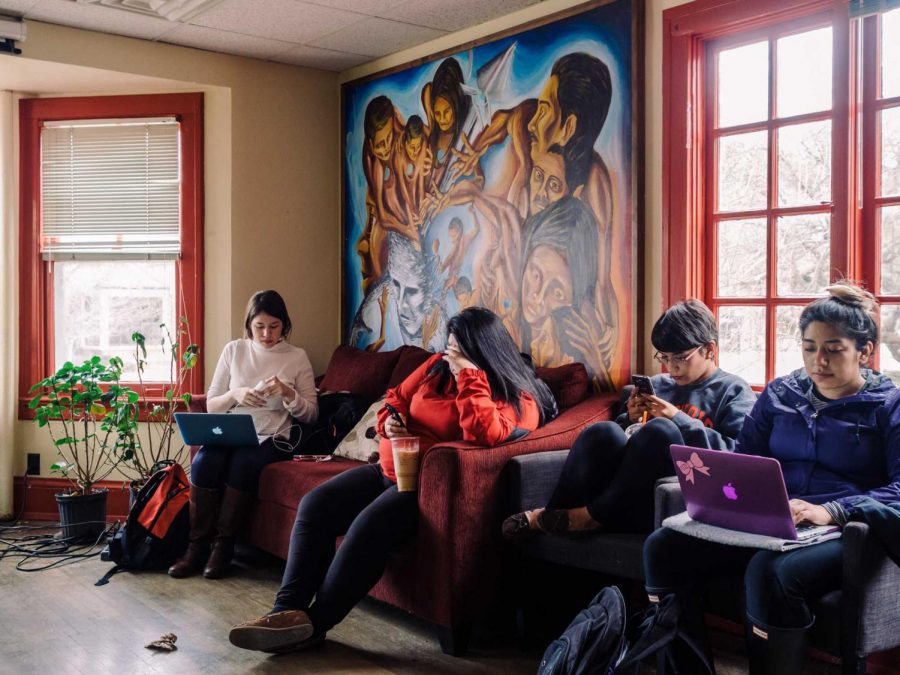University program works to improve local Hispanic health
Students rest in La Casa Cultural Latina on March 7, 2016. The Abriende Caminos program concentrates on bettering Hispanic health.
Mar 8, 2021
The University of Illinois is known for many of its renowned groups of faculty and research projects that aim to solve real-world issues, ranging from climate-related complications to societal issues like those that arise from racism within public school systems.
On campus, the Family Resiliency Center is an example of the institution’s efforts to understand and remedy the many issues that directly impact families in the Champaign-Urbana community. This center was established in 2000 and aims to use research to inform its work with families and help them build resiliency, thus better preparing them for the many challenges they may face in the world.
The center has many branches of research projects that address different issues. One, in particular, is the project Abriendo Caminos. Abriendo Caminos focuses on bettering Hispanic health through research and applying this research by educating families on how to improve their health outcomes. Margarita Teran-Garcia is the principal investigator for this project. She got her medical degree at National Autonomous University in Mexico City, Mexico, her Pediatric Specialty at the National Institute of Pediatrics in Mexico City, Mexico and her doctorate at the University of Texas Austin. Her primary academic focus is on the topic of obesity and other nutrition-related diseases, and she applies this interest directly to Abriendo Caminos.
Abriendo Caminos began as a pilot program conducted in 2008. Evidence suggested the impact of this program was large and effective, thus it was expanded and now exists in five different locations: California, Illinois, Iowa, Puerto Rico and Texas. The program helps Hispanic-heritage families who have transitioned to life in America by educating them about clean diets in an American lifestyle and providing them with resources that allow them to make these clean diets a reality.
“We know that low-income, low-literacy families have a hard time adapting to their surroundings in their community, to really make a good selection of the foods they need for their healthy living, and they lose many of their traditional meals, which causes a lot of problems for their health,” Teran-Garcia said. This term is specifically called the “health paradox.”
Get The Daily Illini in your inbox!
“Many Hispanics and many recent immigrants, when they arrive to the states, they are healthy if they continue their traditions,” Teran-Garcia said. “The more they adapt to the American lifestyle and the ways of eating, the worse they do with their health.”
Abriendo Caminos works with researchers and volunteers to combat this health paradox from happening, and the families are loyal. Even in the age of the COVID-19 pandemic, the program is adapting to continue to serve families. Teran-Garcia explained how the program has turned to online virtual meetings and pre-recorded videos to reach its clients, and families do what they can to get access to these resources, even if it means driving to a parking lot that has better Wi-Fi than their household does.
It is organizations like these that allow families to make these big cultural transitions.
“Whatever country you are, be proud of your heritage and the good things that culinary heritage brings to you,” Teran-Garcia said.
The organization has been immensely successful at creating a support base with its families, and the success is likely to continue far into the future.
Abigail is a freshman in LAS.






